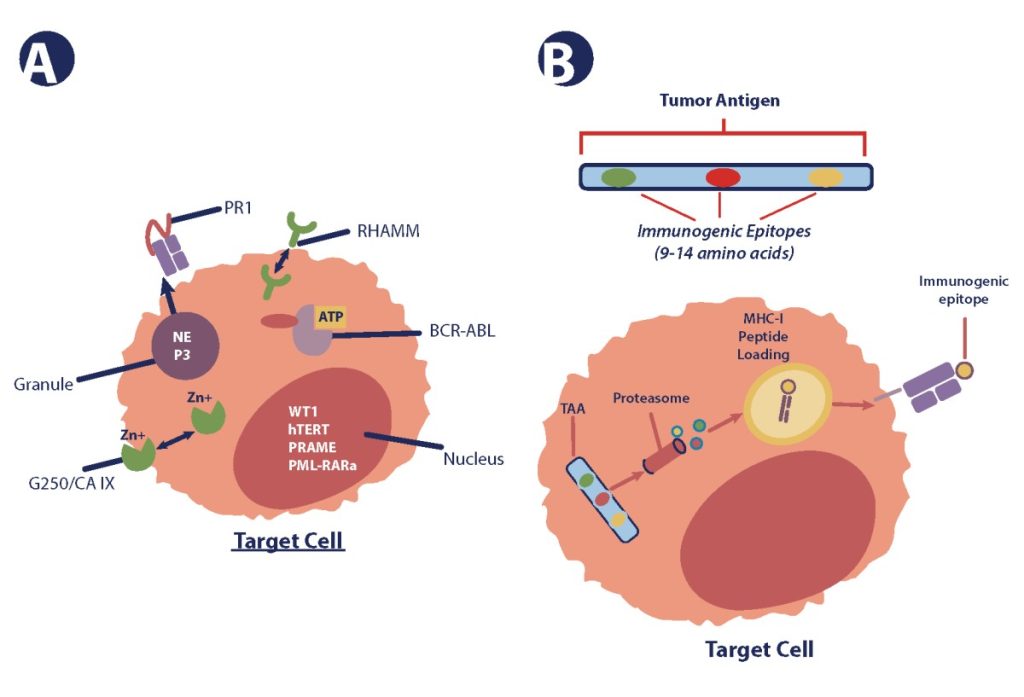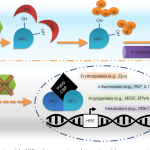Many tumor cells produce antigens, which may be released in the bloodstream or remain on the cell surface. Any molecule capable of being recognized by the immune system is considered an antigen. Antigens have been identified in most of the human cancers, including Burkitt lymphoma, neuroblastoma, melanoma, osteosarcoma, renal cell carcinoma, breast cancer, prostate cancer, lung carcinoma, and colon cancer. A key role of the immune system is detection of these antigens to permit subsequent targeting for eradication. However, despite their foreign structure, the immune response to tumor antigens varies and is often insufficient to prevent tumor growth
TSAs and TAAs typically are portions of intracellular molecules expressed on the cell surface as part of the major histocompatibility complex.
Suggested mechanisms of origin for tumor antigens include
· Introduction of new genetic information from a virus (eg, human papillomavirus E6 and E7 proteins in cervical cancer)
· Alteration of oncogenes or tumor suppressor genes by carcinogens, which result in formation of neoantigens (novel protein sequences or accumulation of proteins that are normally not expressed or are expressed at very low levels, such as ras or p53), either by generating the novel protein sequence directly or by inducing accumulation of these proteins
· Development of missense mutations in various genes not directly associated with tumor suppressor or oncogenes and that cause appearance of tumor-specific neoantigens on the cell surface
· Development of abnormally high levels of proteins that normally are present at substantially lower levels (eg, prostate-specific antigens, melanoma-associated antigens) or that are expressed only during embryonic development (carcinoembryonic antigens)
· Uncovering of antigens normally buried in the cell membrane because of defective membrane homeostasis in tumor cells
· Release of antigens normally sequestered within the cell or its organelles when tumor cells die



Comments are closed